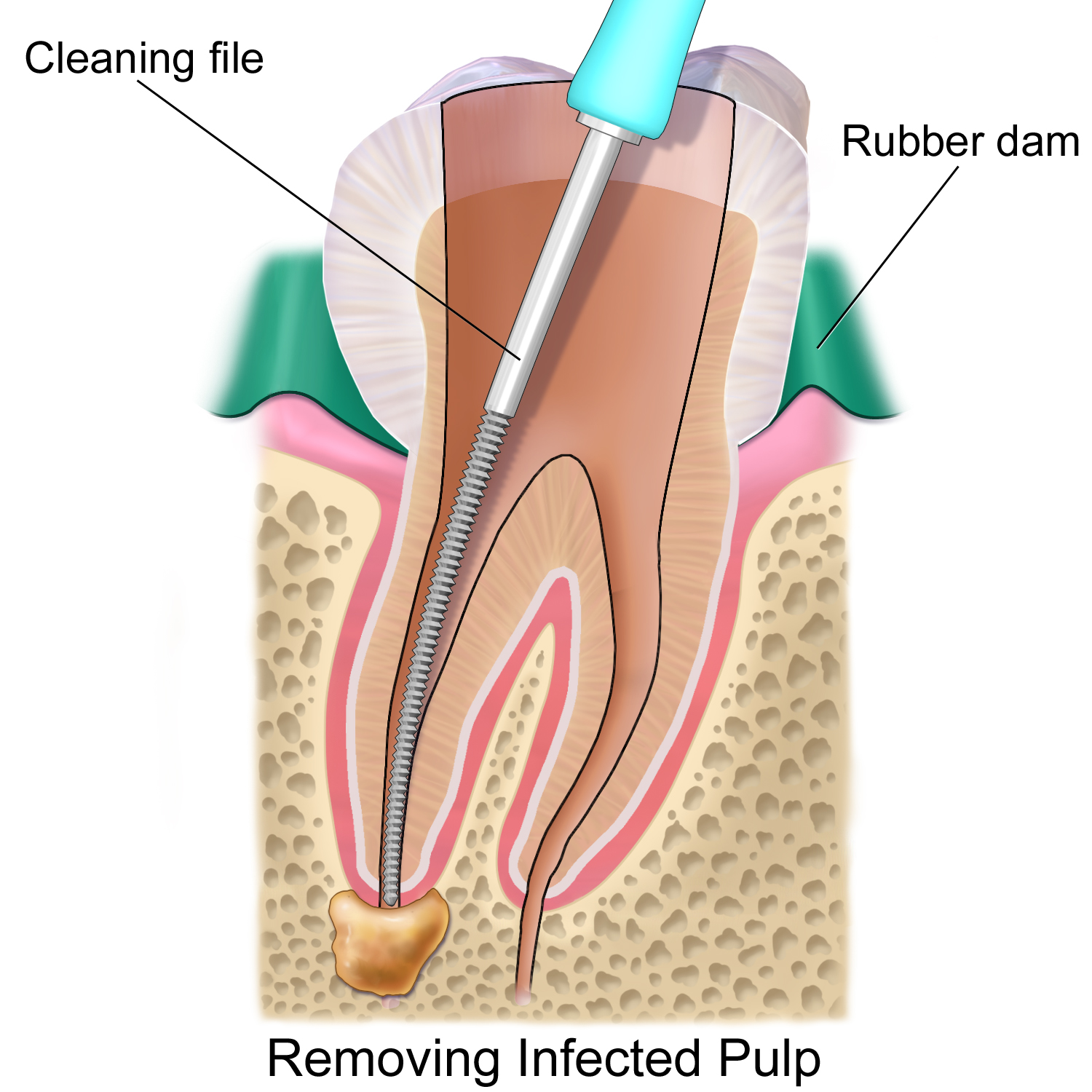Root Canal Mississauga Services
At Dr. Bobby Brown and Associates, our dentists perform root canals when the pulp inside of the tooth becomes infected or damaged and is used to preserve the tooth itself (instead of needing an extraction).
What is Endodontics
The Greek words “endo” and “odont” mean “inside” and “tooth,” respectively. Endodontics deals with the interior of the tooth which is called the pulp and any tissues surrounding the tooth roots. One such type is root canal therapy.
What Is a Root Canal?
Root canal therapy aims to remove germs from the affected area, avoid recontamination, and save the original tooth. The inflammatory or diseased pulp is extracted, and the tooth’s interior is meticulously cleaned and sanitized before being filled and encased.
Teeth Problems & Symptoms
Various warning indications may suggest the necessity for a root canal, which are described below:
- Among the key indicators is persistent tooth discomfort. The amount of pain can range considerably, with some patients reporting pain so severe they cannot sleep.
- Hypersensitivity when eating and drinking. A dull aching or severe pain may accompany the sensitivity. Especially if the discomfort persists even after you stop eating and drinking.
- Your tooth may develop discoloration due to an inflammation in the pulp.
- Swollen gums surrounding the aching tooth may also be an indicator of an infection. It’s possible that the swelling will come and go. It might be sensitive when you touch it, or it could be completely painless.
- Bacteria can enter a chipped or broken tooth after an accident following injuries in a competitive sport or biting on anything hard.
- Cavities that haven’t been checked. If you have been putting off getting a filling, the cavity may be deep enough to allow bacteria to enter the interior of the tooth leading to infection.
Endodontics Procedure
Root canal surgery may seem frightening to hear about, however, that is the extreme case and it’s usually done to avoid something much worse.

source: Blausen.com staff (2014). “Medical gallery of Blausen Medical 2014”. WikiJournal of Medicine 1 (2). DOI:10.15347/wjm/2014.010. ISSN 2002-4436.
Prepping Session: When you go for your treatment, a professional will lead you to a treatment room, assist you in settling into a chair. A small amount of numbing medicine will be applied to your gum around the damaged tooth by the dentist. A local anesthetic will be administered into your gums after the numbing cream has taken effect. You may feel a strong pinch or a burning feeling, but it’ll go away fast. Depending on your level of dental anxiety, we can help you with various medications to calm or to render you partially unconscious.
Cleaning the Infected Pulp: The dentist will make a tiny hole in the crown of your tooth after it is numb. The professional will then gently remove the contaminated or diseased pulp using special instruments called files. They’ll take extra care to clean up all of your tooth’s passageways (canals).
Sealing the Tooth: The dentist may apply a topical medication to the region after the pulp has been removed to assure that the inflammation is gone and avoid reinfection. After the canals have been cleaned and sterilized, the dentist will cover and seal the tooth using a sealer paste and a rubber-like substance called gutta-percha. They may also give you oral antibiotics for pain and infection management.
Temporary Filling: The dentist will next use a soft, temporary substance to fill the little space in the crown of the tooth. This sealer helps to protect the canals from salivary contamination.
Can Dentists Treat Root Canals?
Absolutely. A general dentist doesn’t have to be a specialist such as an endodontist to treat them. However, cases can sometimes be referred to one if special consideration or complications need to be addressed.
What Do You Need After Treatment?
Following a root canal, it’s vital to keep up with proper dental hygiene. Brush twice a day, floss daily, and use antibacterial mouthwash regularly to keep your teeth healthy.
From there, you’ll have a follow-up appointment with your dentist to ensure that everything has healed properly. A regular oral hygiene practice will help you keep your teeth and gums healthy and away from root canal infections for years ahead.
More Questions?
The first step is to book an appointment with the dentist for a consultation. From there, we will evaluate the teeth in question and suggest treatment to move forward. Call us now for free, friendly advice.
